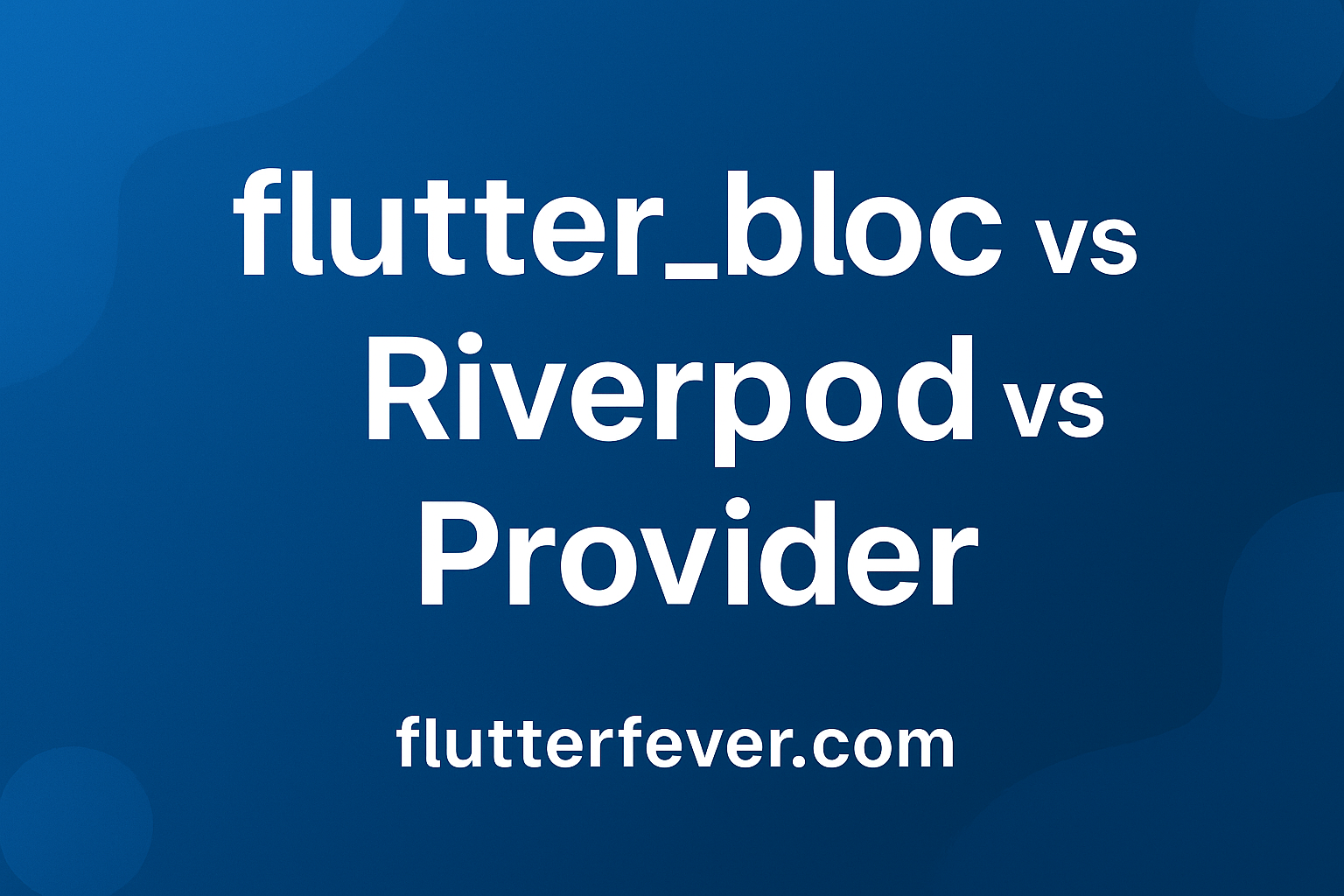Flutter BLoC vs Riverpod vs Provider (2025): Which State Management Should You Choose?
In 2025, choosing the right state management solution in Flutter is more crucial than ever as apps grow in complexity and developers demand better performance, scalability, and maintainability. Among the top contenders in the Flutter ecosystem are flutter_bloc, Riverpod, and Provider. Each has its unique strengths, philosophies, and use cases. This guide compares these three to help you decide which one suits your project best.
1. Overview of Each Package
flutter_bloc
- Official Package: flutter_bloc on pub.dev
- Maintainer: Felix Angelov & community
- Architecture Style: BLoC Pattern (Business Logic Component)
- Best For: Large applications, enterprise-level architectures
Riverpod
- Official Package: riverpod on pub.dev
- Maintainer: Rémi Rousselet (also created Provider)
- Architecture Style: Functional, Compile-safe
- Best For: Scalable, testable, and safer state management
Provider
- Official Package: provider on pub.dev
- Maintainer: Community-driven (initially by Rémi Rousselet)
- Architecture Style: InheritedWidget-based
- Best For: Simpler apps, quick prototypes
2. Key Features Comparison
| Feature | flutter_bloc | Riverpod | Provider |
|---|---|---|---|
| Learning Curve | Steep (but structured) | Moderate | Easy |
| Boilerplate Code | High | Low | Low |
| Compile-time Safety | Moderate | Strong | Weak |
| Code Separation (UI & Logic) | Strong | Strong | Moderate |
| Built-in Dev Tools | bloc_devtools | riverpod_devtools | Limited |
| Reusability | Excellent | Excellent | Good |
| Testing Support | Strong | Strong | Decent |
| Community Support | Large and active | Growing rapidly | Stable |
| Async Support | Stream-based (Bloc) | Future/AsyncValue-friendly | Limited to ChangeNotifier |
3. Use Cases
When to Use flutter_bloc
- Large scale applications with complex business logic
- Projects requiring clear UI and business logic separation
- Enterprise apps with a need for predictable state transitions
When to Use Riverpod
- Medium to large apps where safety and testing are priorities
- When you want fine-grained control over dependency injection
- Functional programming fans and compile-time safety seekers
When to Use Provider
- Small to medium apps or quick MVPs
- Projects with limited state requirements
- Developers just getting started with state management
4. Performance Comparison
- Riverpod is generally considered the most performant due to its compile-time safety and fine-grained rebuild mechanism.
- flutter_bloc can be performant but may incur overhead with excessive boilerplate and stream management.
- Provider is lightweight but can trigger unnecessary rebuilds if not used carefully.
5. Developer Experience in 2025
| Package | Developer Feedback (2025) |
|---|---|
| flutter_bloc | Structured but heavy. Preferred in teams following clean architecture |
| Riverpod | Safe, clean, and scalable. Now often a default for new projects |
| Provider | Still widely used but gradually replaced by Riverpod |
Frequently Asked Questions (FAQs)
Yes, but it’s not recommended unless there’s a strong reason. Prefer consistency in your state management.
Provider is the easiest to learn, but Riverpod offers a modern experience with better safety.
Yes, Riverpod was created by the same developer to address the limitations of Provider.
flutter_bloc and Riverpod are both excellent. flutter_bloc is more traditional; Riverpod is more modern and flexible.
Yes, it’s fully compatible, though it can increase bundle size slightly due to boilerplate.
Final Thoughts
There’s no one-size-fits-all solution in state management. The best package depends on your app’s complexity, team familiarity, and architectural goals. For modern apps prioritizing performance and safety, Riverpod is gaining the upper hand in 2025. However, flutter_bloc still remains a solid choice for developers who value structured patterns, and Provider continues to serve smaller apps effectively.


